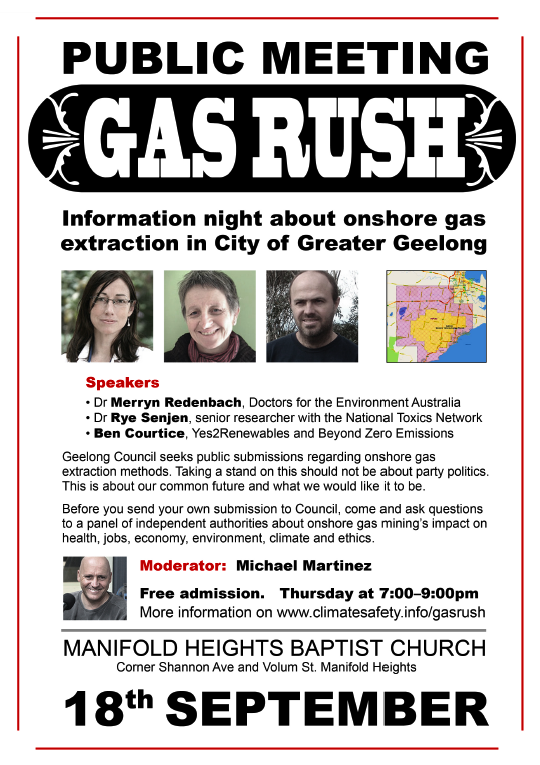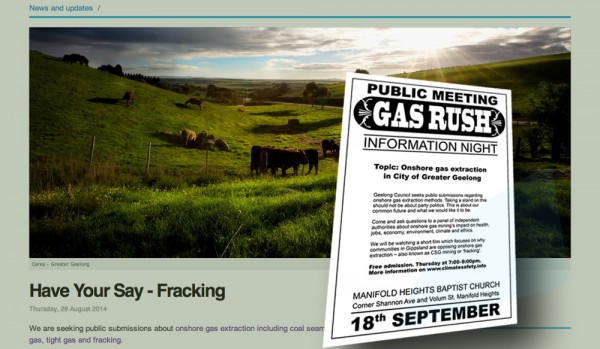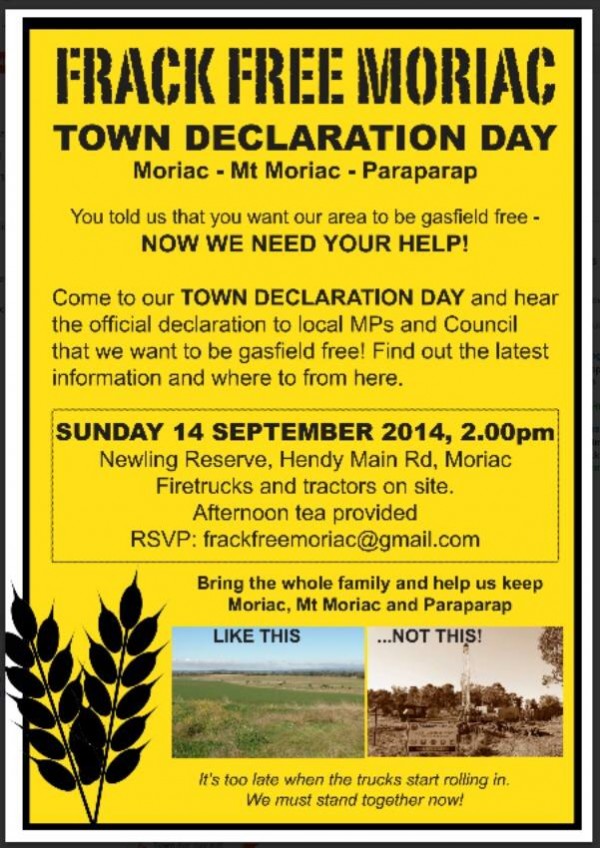On 14 October 2014, Chris Johnson and Anthony Gleeson handed over Geelong and districts’ petition favouring a total ban on fracking with 1,180 signatures to Mayor Darryn Lyons.
“This is the culmination of countless hours of work by very dedicated and concerned citizens of Geelong. Much appreciation to Friends of the Earth, Yes2Renewables, Quit Coal and Lock the Gate Alliance for their invaluable mentoring and for the overwhelming support of the Geelong and district communities who have drawn their line in the sand,” said Anthony Gleeson.
“Now all we need is for CoGG councillors to heed the advice given to them by their staff and vote fracking down tonight at their meeting tonight,” Chris Johnson added.
» Photos in high resolution are available here
» Read the media release
Comments to Geelong Councillors
from 250 concerned citizens of Geelong
There is too much evidence showing that fracking affects the water table and pollutes water supply. The product (coal seam gas) also pollutes our environment, and the drilling rigs themselves are an eyesore. It’s also offensive that citizens most affected seem to have no say in whether these exploration rigs (and subsequent infrastructure) can invade their community.
Louise Segrave, Highton, 3216 – Australia – 2/16/14
I disagree with the further development of any fossil fuel based energy. We need to invest that money in new safe sustainable technologies, not short term quick fixes that are potentially risky, and keep us dependent on an outdated and polluting industry.
Ben Nunn, Geelong West, 3218 – Australia – 2/16/14
Our water and air quality are a higher value than financial profits!!!
Diamond Jim Legend, Corio, 3214 – Australia – 2/16/14
In a country where we often face water shortages it cannot be a good idea to poison our water supplies. Also this does not help tackle climate change. We need to start investing in renewable energy.
Benjamin Sexton, 3218 – Australia – 2/16/14
Fracking threatens our water and farmland for a product that should now be obsolete. Energy from the sun and wind is 21 Century thinking!
Judy Cameron, Otway Ranges, 3241 – Australia – 2/16/14
I live here and wish to protect the health of my area, my community, my family and myself!
Liz Hines, HightonVIC, 3216 – Australia – 2/16/14
Lots of Ford workers out of work now. Ford closed shop because to pay 3 x as much for gas for their operations to meet export parity was uneconomic. A lot of families are hurting in Geelong now because of these non local gas companies – and to add insult to injury they want to frack the Otways – the main water supply for Geelong City and poison us as well. Will they compensate or take responsibility for this? I dont think so. Frack Off Lakes Oil!!!
Katherine Marchment, Melbourne, 3122 – Australia – 2/16/14
csg and shale deadly SCAMS to hit Australian shores, radioactive water, fires, drought 9 million gallons of fresh water per well ?
Jane Hughes, Brisbane, 4054 – Australia – 2/16/14
This is a “no-brainer” that’ s why!
Ingrid Hindell, Geelong North, 3215 – Australia – 2/16/14
Coal seam gas mining has not been proven safe and would be irresponsible to approve it in the Geelong region. There is too much evidence of water damage. If we want more energy, we should be focusing on the renewable energy that is available right now.
Gavin Brown, East Geelong, 3219 – Australia – 2/16/14
“In addition to the damage done to the natural environment(water, land, air) & the health of humans & all other living things, there’s the moral obligation which comes from supporting the demands of the latest peer-reviewed climate science which is screaming out that we must leave all fossil fuels in the ground.
With the old guard of Ford, Shell & Alcoa leaving the area, it’s a golden opportunity for CoGG to forge a clean energy future. Out with the toxic past – in with a clean energy, job rich, community building future.”
Anthony Gleeson, Geelong, 2472 – Australia – 2/17/14
Coal seam gas mining has not been proven safe and would be irresponsible to approve it in the Geelong region. Also it’s another non-renewable resource and a fossil fuel causing a variety of environmental damage issues when mined and burned. Through good design, simpler living and creativity we can reduce our need for energy which I see as the prime goal together with a variety of other solutions including using renewable energy options. Ensuring that all new buildings are passive solar is probably the single best thing we can do…free energy from the sun which when combined with storing it in thermal mass e.g. concrete slab, allows for free heating through winter…our highest energy use in Victoria.
Monica Winston, Belmont, 3216 – Australia – 2/17/14
The context for this discussion is decisive! Climate change, ecosystems needing regeneration, species extinction etc. The other point is that this is not a short term problem so we’ll need to come up with solutions that allow for the needs of other species and future generations to thrive. Also who is the proposed consumer of this gas? Is it for local communities or are we proposing to sell it to overseas consumers…helps determine what strategy i.e. is it an energy issue or for private economic interest?
Monica Winston, Belmont, 3216 – Australia – 2/17/14
Because we have seen what is happening in the US this is no different no matter how much spin they put on the difference. Just do the research. Big money is destroying our land and I for one love this country. Go away Big Money. Greedy disgusting people who don’t care for anyone or anything but their fat bank accounts.
Timi Bell, Lismore, 2480 – Australia – 2/17/14
Permitting fracking, with its attendant potential to pollute underground water, is something which must be resisted throughout Australia.
Hugh Nicholson, The Channon, 2480 – Australia – 2/17/14
Internationally fracking has been shown to cause damage to agricultural lands, aquifers, and water supply amongst other environmental pollutants. Victoria, and in particular the South Barwon region makes up the food bowl for Australian domestic and export produce markets. To destroy it and our economy for access to gas by a few companies does not constitute short term thinking and not a vision for a successful economy or future.
Suzette Jackson, Geelong, 3218 – Australia – 2/17/14
Fracking destroys our environment
Lorna Martin, Whittington, 3219 – Australia – 2/17/14
It is our God given duty to look after this earth and fracking can only destroy it
Beverley Harris, Drouin, 3818 – Australia – 2/17/14
There are plenty of alternative, renewable energy sources to be explored before fracking. This is the dirtiest of the lot, dangerous to communities and totally unnecessary.
Sam Smith, barwon heads, 3227 – Australia – 2/17/14
FRACKING or QGC have already poisoned my water & air
john jenkyn, 4413 – Australia – 2/17/14
The future is important for all humans. This practice (fracking) is all about quick profit and nothing about looking after our natural services. Aquifer Water basins and the communities they support depend on this renewable resource totally. Any practice whereby injecting hydrocarbon carcinogens into the areas nearby water aquifers is about as stupid as it gets. Get real and send a message to the swine who want to force this toxic process into our backyards.
Mark Hardley, 3228 – Australia – 2/17/14
Why risk exposing our drinking water and precious farm land to hazardous chemicals from Fracking. It’s just not worth it – you can’t eat or drink oil and gas. We have the clean technology solutions to make move on from fossil fuels, we only lack the political will.
Daniel Cowdell, 3216 – Australia – 2/17/14
Because I care about the future of this country and am horrified to see the unprecedented rush to destroy our beautiful home for export / multi-nationals. We are the driest inhabited continent on earth. What a disgrace.
Carly Woodstock, Alstonville, 2479 – Australia – 2/17/14
Because fracking is temporary profits for permanent damage.
lindsay smith, ocean grove, 3226 – Australia – 2/17/14
We need more renewable energy, not more fossil fuels.
Steve Williams, Clifton Springs, 3222 – Australia – 2/17/14
The potential for damage to the environment caused by fracking is too great a risk to take. Our environment is fragile and must be sustained for your children and grandchildren and all future generations. If we continue to choose greed over conservation, there will be no future.
Karen Moran, Geelong, 3216 – Australia – 2/17/14
Fracking is environmental vandlism and should not be encouraged, especially in an era where governments purportedly champion “sustainability.”
gary oraniuk, geelong west, 3218 – Australia – 2/18/14
This is important to me because I still have grave concerns about the safety of coal seam gas mining and I live in the Geelong area
Andrea Buckley, Geelong, 3215 – Australia – 2/18/14
Total Ban on fracking is important to me because I love the land and care about my environment. Please do not let it happen.Sincerely Diane Morris
Diane Morris, 3101 – Australia – 2/18/14
Communities have a right to determine what goes on in and around them. The future of towns and their sustainablility extends to what industries exist therein. CSG extraction is not a sustainable way for towns and communities to be given jobs, ‘growth’ or ‘economically sustainability’.
Sophia Christoe, 3070 – Germany – 2/19/14
The future for the Geelong region is clean green renewable energy. Natural gas is a non-renewable greenhouse gas, which we should be phasing out rather than phasing in
Dave Campbell, Geelong, 3215 – Australia – 2/19/14
Because fracking is a completely uncontaminated method of mining, making our towns sick.
Damien Marchant, 3240 – Australia – 2/20/14
We need to to substantially reduce our reliance on fossil fuels and move to renewable energy. It’s critical for the future of this planet earth. The scientific evidence on this is very clear.
Wendy Marchment, 3216 – Australia – 2/23/14
Greed!! Government, Council and and Business. Find another way.
Anonymous, 3018 – Australia – 2/25/14
This is a national health, land use and repercussion disgrace.
Shirley Parsons, 3220 – Australia – 2/26/14
Don’t tamper with our environment !!!
JO CANT, 3222 – Australia – 2/26/14
this is important because this is about the future of our lands’ capacity to continue to support the life it currently sustains
fleur monteith-brique, 3215 – Australia – 2/28/14
Don’t do it CoGG, please! Do you really want Geelong – Anglesea to end up looking like Tara in Queensland? Do you really want to be responsible for adversely impacting so many peoples lives? Read about what it’s like for people living on the gas fields, there is so much information out there. Find another way, please!
Naomi Betts, 3352 – Australia – 3/1/14
Our water resources must be protected for this and future generations.
Debbie Carruthers, 3880 – Australia – 3/19/14
I care for the environment and fracking destroys the enviroment
Margaret Huber, 3215 – Australia – 3/28/14
I am concerned about the environmental impact this will have on our doorstep. The damage it will do to the natural environment (water, land, air) & the health of humans that live in the vicinity.
Wolfgang Klemenz, 3215 – Australia – 3/29/14
Fracking is just one more unsustainable way to continue raping the earth in search of non renewable energy sources. All this leaves behind is a polluted environment, destroyed communities, richer and more powerful corporations. It doesn’t make sense to continue on this path we need to move to renewables!
Ernesto Sanchez, 3219 – Australia – 3/31/14
It is imperative that we take a stand in Victoria now, to safeguard the health of our waterways, our land and air, our people and our ecosystems. We cannot sacrifice our landscapes to invasive industrial gasfields.
Jennifer Carter, Tambo Upper, 3885 – Australia – 3/31/14
Fracking is a huge unknown. We have no real understanding of the long term consequences. Make Geelong a hub of new sustainable technologies and a proud, innovative frack free zone.
April Baragwanath, Geelong, 3220 – Australia – 4/3/14
It is about time the message was sent to our governments that cheap and easy energy is much less a future priority than sustainable and reliable locally grown food supply in and from a healthy environment.
Gerhard Grasser, Darnum, 3822 – Australia – 5/4/14
Australia does not need fracking, more coal mines or any shale oil developments. These are old technology,too polluting and unnecessary.The beautiful Victorian countryside needs to stay that way.
Angela Fyfe, Beaudesert, 4285 – Australia – 6/3/14
There is not enough known abut what the long term effects of fracking will be for our future water table and rivers. We have plenty of alternatives to choose from with wind and solar energy and there is no need to destroy our farming country for the energy that will be taken by a few and sold to many, this is just greed
Lyn Keynes, Ocean Grove, 3226 – Australia – 6/9/14
This impacts our future forever.
Belinda Harding, 3000 – Australia – 6/9/14
There is ample documentation about the ecological damage that this process causes. We should be pushing our resources towards alternative energies rather than allowing the short term profits for those involved in the mining and coal industries
Anna Hurley, 3000 – Australia – 6/20/14
Fracking will poison our freshwater supply and then all of us will be in REAL trouble. This is life or death so wake up!
Elfian Schieren, Goonellabah, 2480 – Australia – 6/24/14
Geelong is my home, we are raising a family here. Fracking is a risk I don’t believe we should take.
Rachel Burke, Highton, 3216 – Australia – 7/27/14
We only have one planet and our children need to have hope for a clean healthy future.
Cathy Marshall, Geelong, 3222 – Australia – 7/30/14
I am signing this petition because I care about the community of Geelong & our environment & dont want it wrecked for my grandchildren. Fracking is totally unacceptable for Geelong and every other community. It has caused untold damage around the world. We dont want it in Geelong.
Lynley Manson, Geelong, 3216 – Australia – 7/31/14
Unconventional Coal Seam Gas Mining is the dirtiest and most environmentally destructive industry on earth. It should be closed down.
Alan Manson, 3216 – Australia – 7/31/14
“Onshore Gasfields are not compatible with agriculture, clean water, fresh air.
The short term benefits of extracting this gas for an overseas market is far outweighed by the long term consequences that all Australians will have to live with if it occurs.”
Billy Fox, 3305 – Australia – 8/3/14
I love my country and my Family, I don’t want to see the destruction that is caused from the extraction of CSG,,, I don’t want to lose our lucky country
Rhonda Mitchell, Portland, 3305 – Australia – 8/3/14
Poisoning and depleting our water table and rivers is criminal and insane. No water equals No life. It’s that simple.
Samantha Shepherd, 2455 – Australia – 8/3/14
we do not want gas running through our water pipes
Anne Berry, 3305 – Australia – 8/3/14
We are responsible for the health of our children. We also cannot live on ground or use water that is contaminated with chemicals unless we are willing to sacrifice our health and well being. No amount of money or jobs are worth this!
Patricia Rennhackkamp, Lara, 3212 – Australia – 8/3/14
it is very important, so we can keep Victoria and other beautiful regions pollution free
kayleen rundell, 3305 – Australia – 8/3/14
Unconventional gas has the potential to harmall of Victoria. It must be stopped.
Sue O’Shanassy, Torquay, 3228 – Australia – 8/3/14
Fracking is destroying our future. It only exists for financial reasons. We need to start making more intelligent decisions around our impact on the planet we depend on for survival.
Paul Forest, 2454 – Australia – 8/3/14
There isn’t a more blatant form of destructive mining i can think of. Only an idiot can’t see how bad this is.
wayne philp, 5291 – Australia – 8/3/14
Because i believe tracking would have an totally detrimental effect on the environment and living conditions of Victorians for lifetimes to come
Paddy O’Brien, Melbourne, 3280 – Australia – 8/3/14
We studied and lived in Geelong and on our many return visits, we’ve been so impressed at the way the city has developed – please keep it family friendly and attractive to visitors, and take a stand against invasive, polluting gas fracking!! Stand up for the community and stand up for the future!!
Kate Ralton, 5290 – Australia – 8/3/14
The infamous industry wants to take away any possibility of us being self-sustaining, and domestic gas will cost the earth, all for the benfit of overseas corporations.
roma guerin, alexandra, 3714 – Australia – 8/4/14
Absolutely NO – ONE knows what affect fracking will have in the future. Are we that desperate that we have stopped thinking about the horrible possibility that the after effects of fracking could, quite literally, blow up in our faces at a later date? THINK!!!!
Christine Arnel, 3300 – Australia – 8/4/14
I have friends and relations in Geelong, so naturally I don’t want them to be harmed by franking.
Mark Taylor, Tyrendarra, Vic., 3285 – Australia – 8/4/14
b/c our future is important!
caz shannan, portland victoria, 3305 – Australia – 8/4/14
For Life is important to me than death.
Suzanne Edge, 2456 – Australia – 8/5/14
Victoria provides most of the food for the whole of the East Coast. Whay would you threaten a major food source by allowing fracking?
Jeanette Geelen, West Perth, 6008 – Australia – 8/6/14
Fracking is like biting off the hand that feeds us and poisoning the life spring of our future generations. Just plain stupid – come off it!!
kerryl dingey, Newtown, 3220 – Australia – 8/7/14
this is so important to me as my ancestors are buried in and around the Western District and I do not want thier burial sites damaged,,
gavin couzens, Geelong, 3216 – Australia – 8/7/14
Please do not contaminate our and our children’s water supply and the air that we breathe.
Martin Rennhackkamp, Lara, 3000 – Australia – 8/7/14
This issue should be of paramount importance to everyone. Don’t frack our land, there is no profit to gain, the international city Mayor Lyons is proposing will be in name only. House prices will fall, say goodbye to housing investment. You will also increase earthquakes, loss of water, cancer and environmental destruction to name a few. End this now.
Andrew Brique, 3215 – Australia – 8/7/14
do not destroy the health of nature for short term gains
berne nightingale, durbanville, 7551 – South Africa – 8/7/14
I live in an area where fracking may be present. Scenic Rd.
Kau Gibbons, 3216 – Australia – 8/8/14
Fracking is unethical and an environmental vandalism with no benefit to the community, only to a limited few. There can be no reason to support such short sighted destruction.
Kyla Vinton, TORQUAY, 3228 – Australia – 8/8/14
likely to cause problems to our land
neroli hawhtorne, 3216 – Australia – 8/9/14
This issue is important to me because i values the natural environment and industries that support environment. this industry continues to demonstrate practices opposing both of these.
Frances Kelly, PortlandVI, 3305 – United States – 8/9/14
Clean Water for All
David Lovelight, Byron Bay, 2481 – Australia – 8/10/14
Totally against mining in general, especially Fracking…they know the chemicals are toxic, their CEO’s etc don’t want this near their own places, doesn’t that tell you something?
Mick Smith, South Toowoomba, 4350 – Australia – 8/10/14
I’m unconvinced that fracking poses no environmental risks. Prove to me beyond any doubt that it’s safe before you risk my country !!!
Jonathan Jennings, South Yarra, 3141 – Australia – 8/10/14
This is important to me because I care about the future of the Geelong region and want it to retain it’s natural charm. The risks involved in fracking seem far too great and there seems to be little reward for those who actually live in the area.
Dianne Robinson, Geelong, 3216 – Australia – 8/10/14
Geelong is my home town and deindustralisation doesn’t have to mean that our next industry be mining for the benefit of overseas consortiums and bribed and bribing politicians with no thought of the great travesty of poisoned land air and water and a dead community they leave behind. CSG will kill my children, make my house worthless, poison local produce and eternally poison ground water. CSG is a loaded gun pointed at the head of the earth and all it’s inhabitants, short-term gain for eternal devastation and destruction
Eilish De Avalon, Highton, 3216 – Australia – 8/11/14
Our water is finite. Fracking takes much and fouls it. Also causes fracturing of and destabilising
Sandra Camm, Geelong, 3216 – Australia – 8/11/14
Sustainability for our childrens future!
Adam Haack, 3220 – Australia – 8/12/14
There is nothing good about CSG industry.It’s too risky! They have left enviromental disasters in every country that they have been in for decades to come! They need to be stopped!City of Greater Geelong needs to be like our shire. On Tuesday night 26th August 2014 our shire declared “That the Glenelg Shire be an Unconventional gasfield free zone” Motion was passed unanimously by the Glenelg shire council.
Garry Everett, 3304 – Australia – 9/5/14
Destruction of land and environment.
Gail Barton, 3216 – Australia – 9/9/14
Clean water and a healthy environment matter to me.
Glenys Parslow, Geelong, 3220 – Australia – 9/11/14
Fracking is stupid, dangerous, poisonous and short sighted.
Miriam Robinson, North FitzroyVA, 3068 – United States – 9/11/14
Because fracking is decimating our water supply and polluting our environment for a short-term gain.
Carietta White, Melbourne, 3001 – Australia – 9/11/14
Only people who support fracking are those profiting from it
Nicole Rowan, Hamlyn Heights, 3215 – Australia – 9/11/14
Why is the health of the planet important to me? Please!
Bree Schembri, Highton, 3216 – Australia – 9/11/14
I’m signing because our environment needs defenders.
jill hyslop, torquay, 3228 – Australia – 9/12/14
Fracking causes long term damage that has little chance of recovery !!!!
Ken Clissold, 3219 – Australia – 9/15/14
No fracking for Geelong Keep our environment safe clean and free from human interference.
Melva Russell, 3216 – Australia – 9/15/14
It’s will destabilize the geology of the area.
Robyn Schmidt, Grovedale, 3216 – Australia – 9/15/14
We need a clean liveable environment – fracking does not do this
Louise Pattinson, 3216 – Australia – 9/16/14
Once you pollute our waters we can’t turn back. These chemicals are poisonous to humans and livestock
Wendi Fraser, Ormond, 3204 – Australia – 9/16/14
We moved back from overseas to bring up our children in Geelong and we do not want their health, or ours, jeopardised because of fracking.
Allison Sinclair, 3216 – Australia – 9/17/14
I do not think it is healthy for the planet or the people I am strongly against this practice and if you really cared about your children you’d stop this madness !
kris heather, queenscliff, 3225 – Australia – 9/17/14
Renewable energy is far more important to our future than ruining our environment to sell our resources overseas.
Lesley Whitlock, 3216 – Australia – 9/19/14
disagree with the process and possible outcomes
colleen seeley, 3218 – Australia – 9/23/14
Fracking has the huge potential to adversely affect the nearby communities and businesses, not to mention it still being a polluting industry contributing to the massive issue that is climate change.
Samuel Pottenger, Richmond, 3121 – Australia – 9/23/14
Geelong is my home town and It should stay a safe family town where the people and community are out first
Amy-Beth Seeley, 5066 – Australia – 9/24/14
Fracking has not been proven safe, so why not chose renewable and sustainable options instead? I don’t want our futures jeopardised.
Johanne Walker, 3216 – Australia – 9/25/14
Fracking has caused significant problems elsewhere in the world and in other Australian States. Our farmland and our water is of paramount importance in the years ahead. There is no absolute answer that both of these will not be adversely affected by fracking. There is too much at stake to risk what we have.
Kate Tubbs, Bacchus Marsh, 3340 – Australia – 9/25/14
I am concerned about the potential health ramifications
Ian Priddle, Geelong West, 3218 – Australia – 9/25/14
It’s not worth taking the risk
Emma Balkin, Geelong, 3218 – Australia – 9/25/14
If we all considered the environment before the $, we would all be living simply so others could simply live!
Kim Kemerer, 3212 – Australia – 9/25/14
we don’t want chemicals injected into our soil, and farming land cleared.
Goshen Watts, 3216 – Australia – 9/25/14
Fracking is too scary. Water is life, fracking threatens water.
John Nicholson, 3216 – Australia – 9/25/14
Our voices HAVE to be heard
Rhonda COWLEY, 3216 – Australia – 9/25/14
modern world we should learn that this is bad and money is the root of all evil
sarah bridges, Geelong, 3213 – Australia – 9/25/14
I don’t want gas fracking to poison our land and use vast quantities of fresh water in the process.
Danielle Netherclift, St Kilda, 3182 – Australia – 9/25/14
Don’t want our and our children’s water and air contaminated
Martin Rennhackkamp, Lara, 3212 – Australia – 9/25/14
Our environment and our health is in danger if this isn’t stopped!
Cassie Calleya, 3226 – Australia – 9/25/14
Fracking will wreck the soil and the water in the area
Nicoline Griffin, Clifton Springs, 3222 – Australia – 9/25/14
Fracking is irresponsible.
Samuel Cowan, 3121 – Australia – 9/25/14
To keep Geelong frack free!!
Nicole Jones, 3219 – Australia – 9/25/14
I do not want fracking done as it is known to cause issues with ground water, and has links to health risks. Lets focus more on energy that doesnt kill us
Adam Kardas, 3220 – Australia – 9/25/14
I want a clean future with clean energy.
April Meddick, Torquay, 3228 – Australia – 9/25/14
i don’t want this in Geelong
Gay Gold, 3219 – Australia – 9/25/14
I don’t want to sacrifice food and water security for gas. In fact I’ve learned how to make my home gas free and cheap to run.
Sandra Hawkins, Canadian, 3350 – Australia – 9/25/14
Fracking is the worst idea EVER!
Eve Fisher, TorquayVIC, 3228 – Australia – 9/25/14
This seems like total insanity to even think of fracking after what has happened elsewhere, surely we wouldn’t let this happen?
Tabitha Lowdon, 3230 – Australia – 9/25/14
Because I care about the area for future generations
Meg Rawley, 3228 – Australia – 9/25/14
I have children and I want them to have an inhabitable planet for thier future.
Julia Chandler, CORIO, 3214 – Australia – 9/25/14
Don’t do permanent damage to our underground water. Don’t risk methane coming up without being collected. Make a clear stand before unconventional gas mining can get any momentum.
Jan van Dalfsen, Newport, 3015 – Australia – 9/25/14
Because it is important for my future
Meg Rawley, 3228 – Australia – 9/25/14
I want fresh water not fracked water. No to ruining Geelong.
Ali Milner, Bell Post Hill, 3215 – Australia – 9/25/14
This is a no brainer, people! Have you read and seen the consequences?
celia bolton, 3228 – Australia – 9/25/14
Prove to us that you care more about the people who live in Geelong, visit Geelong and to the environment than money!
P Mantle, 3220 – Australia – 9/25/14
Cracking is devestating to peoples, communities land & the environment
Jess Dorney, 3233 – Australia – 9/25/14
“I do not want to see this region of rural Victoria ruined by fracking. Farmlands would be lost, air/land/water pollution would increase drastically and the quality of life for those of us living in this zone would fall. There are alternative,clean sources of energy which we should,as a state,be implementing (i.e. solar and wind energy) and which would have far less negative impact on the environment,if any. Please do not allow fracking to take place,here or elsewhere. ”
Patricia Grey, GrovedaleVIC, 3216 – Australia – 9/25/14
I love and respect Australia’s environmental landscape.
Leah Martini, BrightonENG, BN1 6HF – United Kingdom – 9/25/14
CoGG should ban fracking – it is not wanted!
Belinda Harding, Newcomb, 3219 – Australia – 9/25/14
Fracking contaminates ground water.
Michael Kelly, Geelong, 3219 – Australia – 9/25/14
Renewables is what we must invest in to combat climate change pollution.
erica vernon, jan juc, 3228 – Australia – 9/25/14
Solar and wind are the only safe energy sources – that’s where we need to be investing. Fracking is environmentally UNSAFE!!
LINA LIBROAPERTO, AIREYS INLET, 3231 – Australia – 9/25/14
“CSG mining pollutes our ground water and destroys our environment ”
James Anderson, 3226 – Australia – 9/25/14
It would be crazy and short sighted in many ways to allow fracking in the Geelong region.
Malcolm Ayles, Grovedale, 3216 – Australia – 9/25/14
Environmental destruction..
Dale Hovey, 3219 – Australia – 9/25/14
I don’t believe that fracking is a reasonable option for sourcing energy resources. Our water table is too important to risk and renewable options are the ONLY way forward.
Leah Boucher, 6442 – Australia – 9/25/14
I’m signing because I believe in a future for humans hundreds and hundreds of years from now, and for that we need our earth in a liveable condition!
Tegan Bert, Werribee, 3024 – Australia – 9/25/14
fracking is irresponsible and incredibly damaging for the environment!!! How many mistakes have to happen before people wake up to this!!!
Justin Harbison, 3215 – Australia – 9/25/14
We have our permanent home in Geelong, as do most of our family. I have seen no evidence that Fracking in the long term is safe for the environment. what is done cannot be undone – and the results of damage are not known often for quite some time into projects. Then they are permanent. We need sustainable energy options, not less and less viable fossil options.
Erica Thompson, 6728 – Australia – 9/25/14
Fracking ruins the environment, why ruin the environment?
Erin Campbell, 3216 – Australia – 9/25/14
Please ban fracking. We don’t need it and we certainly don’t want it.
Kirsty Watkins, 3222 – Australia – 9/25/14
There is no need to run the environmental risks for this short term gain. Renewables should be the focus in this modern age.
Tim collyer, 3228 – Australia – 9/25/14
the environmental impact of fracking is too damaging.
Rikki Bandekow, Ocean Grove, 3226 – Australia – 9/25/14
“FU Corruption Follow ME Geoff Thomson SON of a WAR “”HERO””
Not a “”POMMY”” sell OUT”
Geoff Thomson, Port Darwin, 834 – Australia – 9/25/14
I breathe oxygen therefore I oppose fracking, anywhere, anytime.
Tiffany Paterson, Melbourne, 3215 – Australia – 9/25/14
Although I live here, It is important that this criminally destructive method is stopped everywhere. It is only for the profit of a very small few at the cost of everyone. I want my children to have a planet to live on.
Alan Netherclift, Elwood, 3184 – Australia – 9/25/14
It is bloody obvious why it is Important to everyone.
cathy Barker, New Zealand, – New Zealand – 9/25/14
Protect our beautiful city by the bay. Protect our people. No fracking now or in the future.
Thea Carbines, Geelong, 3215 – Australia – 9/25/14
I am 100% opposed to fracking
Carolyn Anderson, 3228 – Australia – 9/25/14
I don’t want fracking!!
Shane Elevato, Lara, 3212 – Australia – 9/25/14
Fracking is dangerous to ground water; damaging of productive farmland and all to produce a short-term ‘fuel’ that is not a bridge to renewables but a highway to hell…
John Knox, Airport West, 3042 – Australia – 9/25/14
I don’t believe that fracking is good for the environment & is only a quick fix to human need at the time & not thinking about the future if our earth for generations to come
alison enders, 3219 – Australia – 9/25/14
Do not release poison…
Benjamin Tehan, Geelong, 3215 – Australia – 9/25/14
Because we don’t have the right to endanger water supplies for future generations.
eric oliver, cannonvale, 4802 – Australia – 9/25/14
I’m a concerned citizen.
Philip Enders, 3219 – Australia – 9/25/14
I am signing because I believe we should be focusing on the development if renewable resources instead of pumping our underground aquifers with 1000’s of chemicals and ruining farm land by pursuing fracking.
sonja Gwosdezki, Aireys Inlet, 3231 – Australia – 9/25/14
All power to your campaign from Stop CSG Sydney (which stopped the test drill site in inner west Sydney). We want the PEL covering 4 million people to be cancelled. And we want more councils to support the campaign too. Freezing old licences is not enough. We want certainty; they have to be cancelled.
Pip Hinman, SydneyNSW, 2042 – Australia – 9/25/14
fracking fractures land, livelihoods and lives.
Deborah Kairn, 3175 – Australia – 9/25/14
This is were I live & I dont want money-hungry mining companies affecting me & my fellow Geelong-ites’ water, food & recreation opportunities
Angela Smith, 3216 – Australia – 9/25/14
i do not agree with fracking stall!
Karen Ray, Torquay, 3228 – Australia – 9/25/14
there are too many unknowns about fracking, it has too much potential to permanently harm our environment
Kerrie Williams, Torquay, 3228 – Australia – 9/25/14
Fracking presents environmental risks.
Helen Ramsay, 3216 – Australia – 9/25/14
Fracking present environmental risks.
Donald Ramsay, 3216 – Australia – 9/25/14
Fracking presents environmental risks.
Peggie Ramsay, 3216 – Australia – 9/25/14
we only have one planet frack it and you’ll f****ck it
Cheryl Canning, Sydney, 2037 – Australia – 9/25/14
the long term damage fracking causes for the community is far more than the wealth it tries to create for the companies engaged in this venture
will blackwell, 3219 – Australia – 9/25/14
I want to see a shift to renewables and I am concerned about the effects of franking on our land and water. Not worth the risk!
Annie Malesic, Montmorency, 3094 – Australia – 9/26/14
I care about my immediate environment.
Haneesh Hanewsh, 3218 – Australia – 9/26/14
We should be exploring and using renewable energy sources not raping and polluting the Earth which we live on and eat and drink from!
Bonnie Edwards, 3222 – Australia – 9/26/14
Geelong & Victoria must stay Fack Free….it’s a no brainer….we need to focus on sustainable, renewable socially conscious industry, this will destroy our state & country’s water, land, economics, job prospects, tourism, agriculture, people’s health & property values
Lynn Hofmann, 3220 – Australia – 9/26/14
I do t want our sub soil and layers destroyed, polluting waterways and causing wide spread immeasurable harm. No Fracking!
Jodie Whittaker, 3220 – Australia – 9/26/14
I want to save the world!
Eileen Jenkins, 3223 – Australia – 9/26/14
It will devastate the water table, our drinking water, our health, the environment and wildlife. It will effect tourism in the Otways change the landscape, removing trees will cause all erosion, more pest weeds and animals and a very unpleasant area to live in. Money can never compensate for a healthy environment, something future generations can never reverse. I take no part in supporting you and any future fracking.
katy rowland, 3222 – Australia – 9/26/14
“For the future of my grandchildren and great grandchildren and all their generations.
Why damage our country more when alternate power from wind and the sun is available. Why damage our agricultural industries just to support overseas financial interests. ”
Beatrice Kenyon, 3223 – Australia – 9/26/14
I am against Gasfield invasion and industrialisation of regional NSW.
Carlos Vieira-Silva, 2480 – Australia – 9/26/14
I have a voice
Melissa Smith, 3216 – Australia – 9/26/14
Why destroy the land in order to produce energy? Renewables are the way to go!
Shay Goossen, 3228 – Australia – 9/26/14
I want cogg to support renewable energy, not fossil fuels that can have significant and long term detrimental impacts on our environment.
Leon Heffer, 3218 – Australia – 9/26/14
I’m singing because I care about the environment being protected .
Vikki Davey, 3228 – Australia – 9/26/14
Fracking endangers the health of the community. The damage to our beautiful environment, let alone the health of the community would be tragic.
Madeline Avene, 3214 – Australia – 9/26/14
Fracking causes serious environmental issues, victoria should be looker toward a future of greener energy sources.
carly sutherland, 3223 – Australia – 9/27/14
The onshore gas industry destroys farming, is dangerous to health. Their high export prices for gas will be passed on to all of us and will probably be the last nail in the coffin of Australian manufacturing.
Ben Courtice, 3340 – Australia – 9/27/14
More poison Darren – please don’t have this in your brief, and therefore history and reputation – dangerous poisons for this City you are gearing toward tourism
Carol Glasgow, Geelong, 3216 – Australia – 9/27/14
To me the health risks seem way too high, and who knows what the long term issues will be, possibly contaminated ground water for a very long time. This is unacceptable
Lyle Zanoni, 3226 – Australia – 9/27/14
We need to look at the long term picture.
Jennifer Hornsey, South Geelong, 3220 – Australia – 9/28/14
To prevent ground pollution
Chelsea Gielen, 3216 – Australia – 9/28/14
I have a moral obligation to protect the environment I live in.
Emma Carter, 3240 – Australia – 9/29/14
I care about the environment and the future of our beautiful beaches.
Barbara Alexander, 3158 – Australia – 9/29/14
fracking is a men made disaster and it is up to the human race to stop it ….unlike others nature disaster
daniele voinot-sledge, kingscliff, 2487 – Australia – 9/30/14
“I’m signing because I don’t believe there has been enough study into the repurcussions of cracking
Also I believe citizens rights outweigh the rights of corporations”
Robert Groth, Gunnedah, 2380 – Australia – 9/30/14
Learn as much as you can before blindly trusting csg industry
Daryl Morris, South Hurstville, 2221 – Australia – 9/30/14
I’m a resident of Torquay
Jasmine Arthur, 3228 – Australia – 9/30/14
i want my water to remain pollution free
rebecca draper, 3228 – Australia – 9/30/14
We should be looking at renewable power sources. Fracking is incredibly harmful to our health and the environment.
Kate Miles, Canberra, 2906 – Australia – 9/30/14
I’m opposed to humanity misusing and destroying natural resources particularly in Australia where our land mismanagement makes me weep. When I travel overseas & nationally the wonder of Australia amazes me- we truly live in a wonderland & it’s destruction for shortsighted gratification is to everyone’s detriment.
Ciri Thompson, 3189 – Australia – 9/30/14
Fracking destroys communities and the environment. We don’t need fossil fuels enough to die for them. Fracking has no place in modern society especially so close to home!
Aaron Parsons, 3029 – Australia – 9/30/14
Fracking will destroy our coastline, vegetation, livestock, wildlife and water supply. I can’t believe this kind of destruction goes on in the world and even worse our country leaders allow it to happen. Its a disgrace.
Angie Vendy, 3228 – Australia – 10/10/14
Of evidence
Sam Walsh, 2087 – Australia – 10/10/14
I’m signing because fracking is senseless, dangerous and is environmentally devastating
mary graham, 2107 – Australia – 10/10/14
The long term destruction to the environment and inhabitants far out weighs the short term monetary gains of conglomerates. Politicians need to look at the big picture of humanity and not just the money.
margie skimming, Highton, 3216 – Australia – 10/12/14






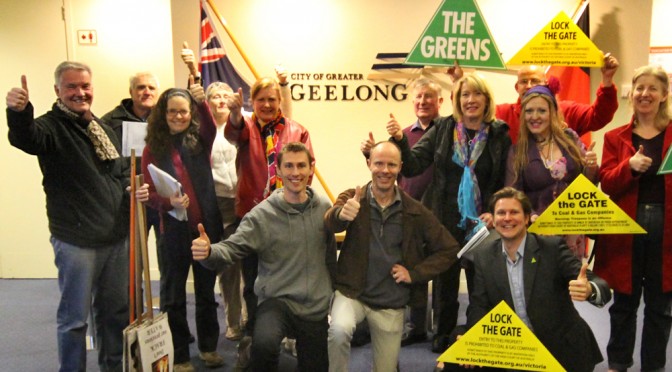



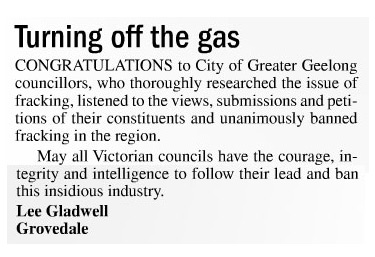
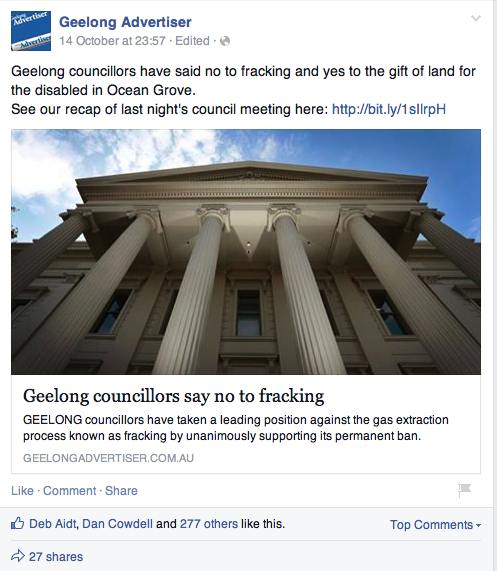



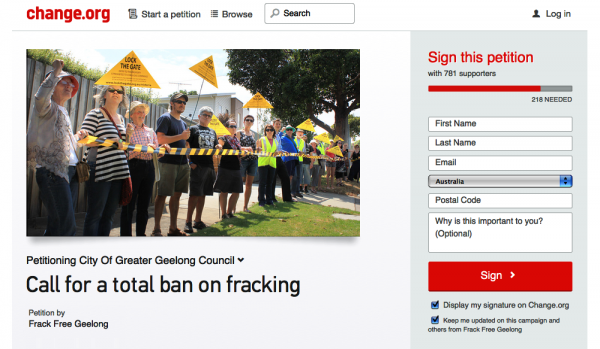
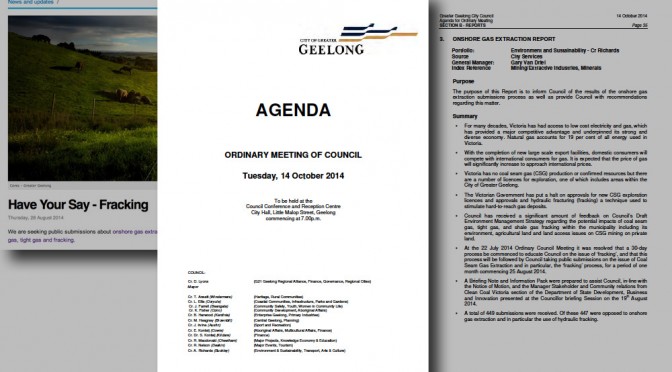
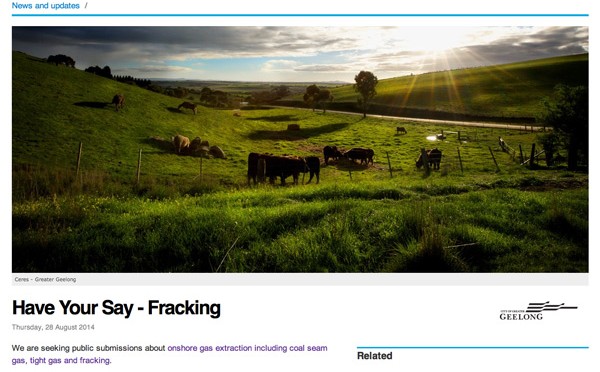
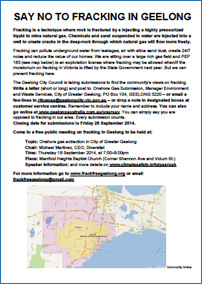


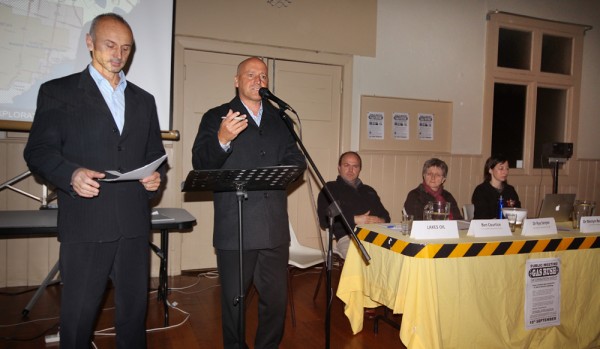

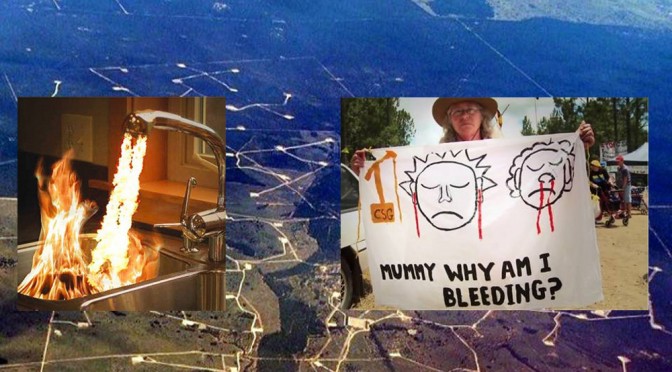



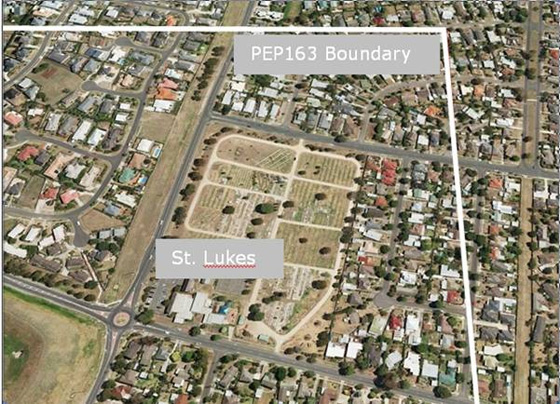
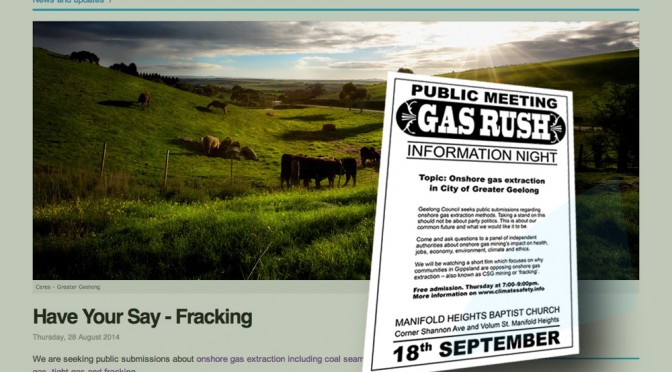
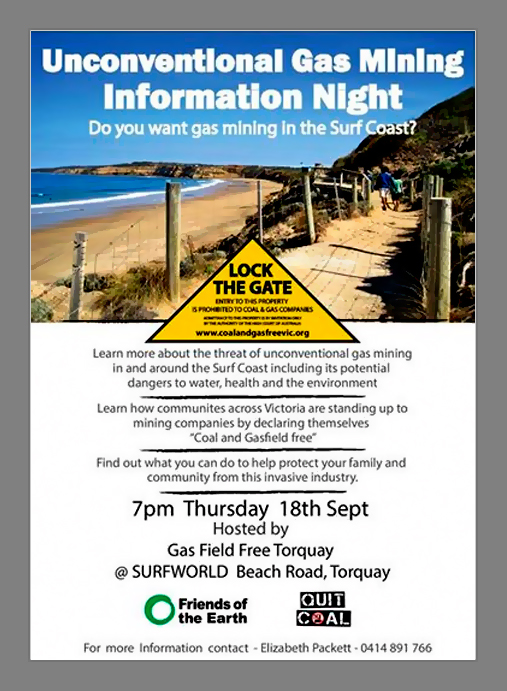
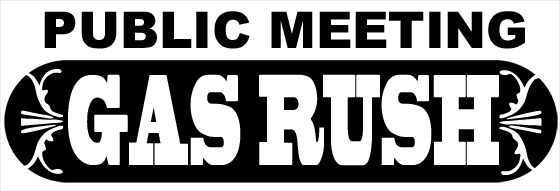
 Dr Merryn Redenbach is an advanced trainee in Community Child Health with the Royal Australasian College of Physicians. She currently works for
Dr Merryn Redenbach is an advanced trainee in Community Child Health with the Royal Australasian College of Physicians. She currently works for 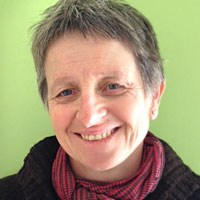 Dr Rye Senjen is a senior researcher with the
Dr Rye Senjen is a senior researcher with the  Ben Courtice writes for
Ben Courtice writes for 